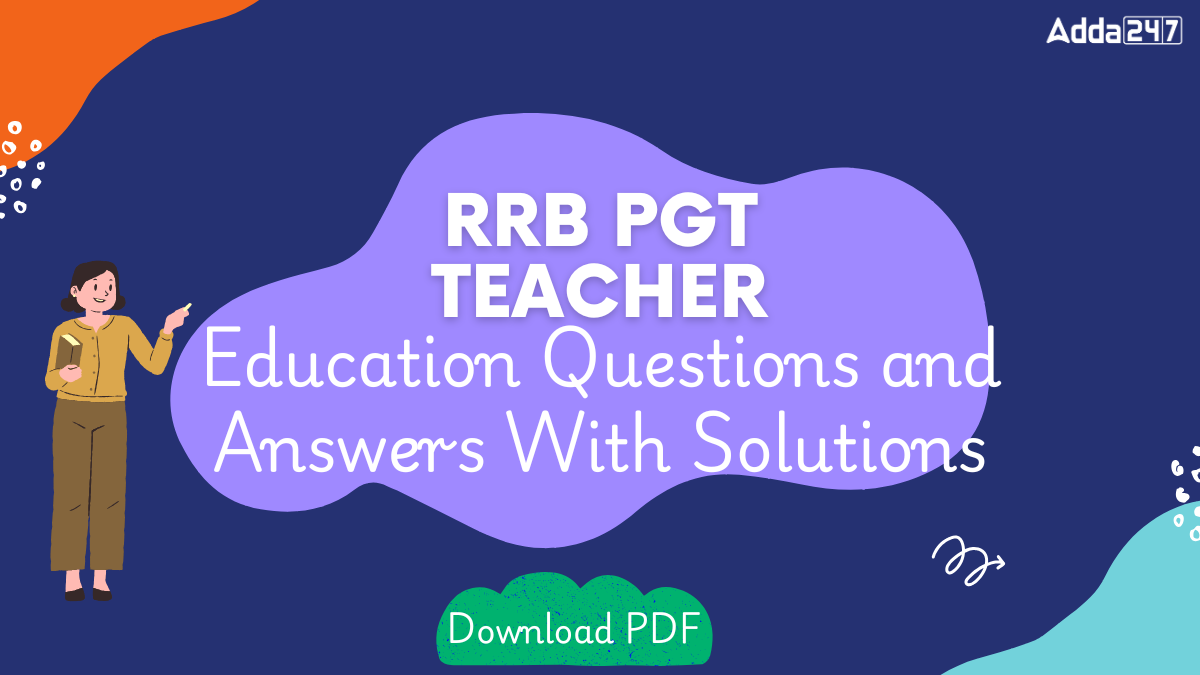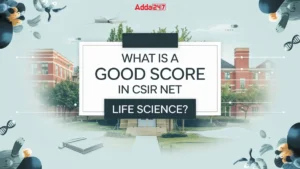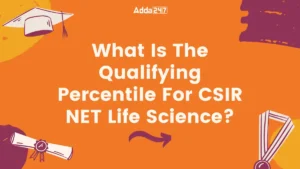Table of Contents
The Railway Recruitment Board (RRB) is conducting the Railway Teacher Exam to recruit teachers for government schools under the Indian Railways. Candidates applying for the PGT Education position must be preparing rigorously to secure their selection. To help candidates ace this section, we have compiled a set of RRB PGT Education Questions with Detailed Solutions. These questions are based on the official syllabus and will help candidates evaluate their knowledge and teaching aptitude effectively.
RRB PGT Teacher Education Questions and Answers With Solutions
Practising these RRB PGT Education Questions will help candidates get familiar with the exam pattern and the types of questions they will face in the actual test. These questions are designed to mimic the real exam environment, giving candidates a clear idea of the difficulty level, question format, and time management required. By solving these, candidates can identify their strengths and weaknesses, improve their accuracy, and boost their confidence. This practice serves as a gateway to effective preparation, ensuring they are well-prepared to tackle the exam with a strategic approach.
RRB PGT Teacher Education Questions
To enhance preparation for the RRB PGT Teacher Exam, we have compiled a set of 30 important Education questions aligned with the official syllabus. These questions cover key topics such as Educational Psychology, Teaching-Learning Theories, Curriculum & Instruction, and Educational Management. Below are 10 sample questions for practice, and the complete 30-question PDF can be downloaded from the link below.
Q1. Which of the following principles of development states that development proceeds in ‘head to toe’ direction?
(a) Principle of Continuity
(b) Principle of Heredity
(c) Cephalo-caudal principle
(d) Proximo-distal principle
Q2. Choose the correct option based on the given assertion and reason
Assertion: Growth refers to physical changes, while development refers to psychological and behavioral changes.
Reason: Growth primarily involves changes in the size, shape, and structure of the body, whereas development encompasses changes in cognitive, emotional, and social aspects.
(a) Both assertion and reason are true, and the reason is the correct explanation of the assertion.
(b) Both assertion and reason are true, but the reason is not the correct explanation of the assertion.
(c) Assertion is true, but the reason is false.
(d) Assertion is false, but the reason is true.
Q3. Which intelligence is NOT included in Gardner’s theory of multiple intelligences?
(a) Intrapersonal
(b) Naturalistic
(c) Emotional
(d) Existential
Q4. Creativity is usually associated with:
(a) Hyperactivity
(b) Low comprehension
(c) Convergent thinking
(d) Divergent thinking
Q5. A child of 16 years of age scores 75 on the I.Q. test. His mental age will be __________ years.
(a) 8
(b) 14
(c) 15
(d) 12
Q6. Classical conditioning theory propounded by Ivan Pavlov explains learning by_____________.
(a) reinforcement
(b) association
(c) imitation
(d) insight
Q7. Who introduced concept Mapping in Education?
(a) Carl Jung
(b) Martin E. Seligman
(c) Noam J. Chomsky
(d) Joseph D. Novak
Q8. Srishti is the student of class two. She was taught basic mathematics by the teacher. The next day while shopping, she pointed out the mistake in the total done by the shopkeeper. Which type of learning is this?
(a) Negative transfer
(b) Positive transfer
(c) Bilateral transfer
(d) Zero transfer
Q9. Reciprocal determinism model of albert bandura consists of the following three factors except
(a) Behavior
(b) Person
(c) Genetic
(d) Environment
Q10. Assertion: Personal motivation plays a significant role in learning.
Reason: When individuals are motivated and have a desire to learn, they are more likely to actively engage in the learning process and retain information effectively.
(a) Both Assertion and Reason are true, and the Reason is the correct explanation of the Assertion.
(b) Both Assertion and Reason are true, but the Reason is not the correct explanation of the Assertion.
(c) Assertion is true, but the Reason is false.
(d) Assertion is false, but the Reason is true.
Solution
S1. Ans.(c)
S2. Ans.(a)
S3. Ans.(c)
S4. Ans.(d)
S5. Ans.(d)
S6. Ans.(b)
S7. Ans.(d)
S8. Ans.(b)
S9. Ans.(c)
S10. Ans.(a)
Download RRB PGT Teacher Education Questions with Detailed Solutions PDF
We have provided the RRB PGT Teacher Education Questions with Detailed Solutions PDF below. Candidates can download these PDFs in Hindi and English, covering essential topics with detailed explanations for each answer. Practicing these questions will help aspirants enhance their subject knowledge, improve accuracy, and boost confidence for the exam.
Download RRB PGT Teacher Education Questions with Detailed Solutions PDF




 CSIR NET Life Science Salary, What to Ex...
CSIR NET Life Science Salary, What to Ex...
 What Is A Good Score In CSIR NET Life Sc...
What Is A Good Score In CSIR NET Life Sc...
 What Is The Qualifying Percentile For CS...
What Is The Qualifying Percentile For CS...












